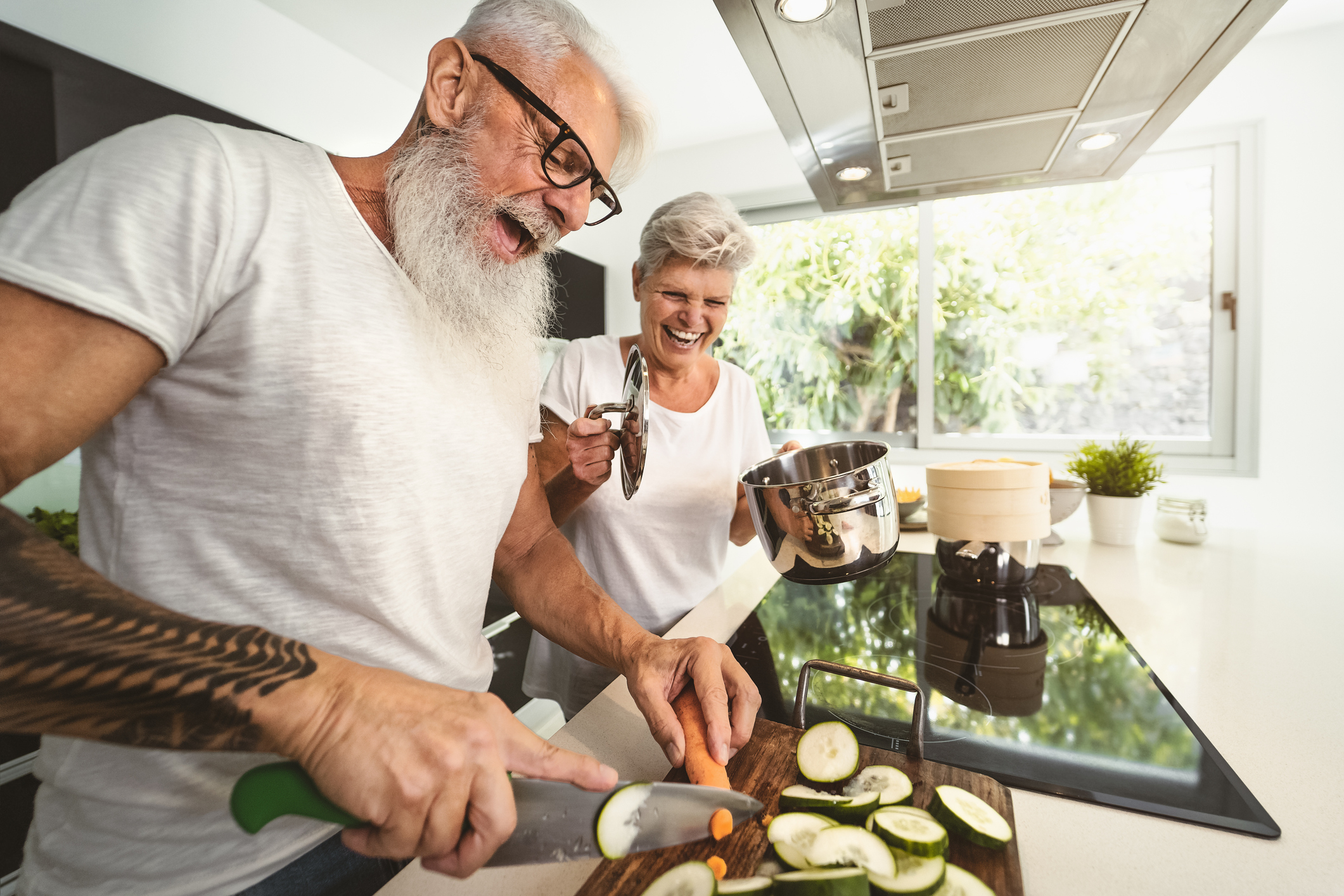Get Easy Health Digest™ in your inbox and don’t miss a thing when you subscribe today. Plus, get the free bonus report, Mother Nature’s Tips, Tricks and Remedies for Cholesterol, Blood Pressure & Blood Sugar as my way of saying welcome to the community!
A better variety of gut bacteria reduces age-related muscle loss

Sarcopenia (the decrease in muscle mass, function and strength that takes place as you age) is a serious problem…
It’s one of the leading causes of physical decline and loss of independence in older adults because it stealthily steals muscle mass just when you need it most.
It can put a kink in your plans to enjoy retirement, whether you see yourself playing golf every day, going on cruises or hosting campouts in your backyard with your grandkids — and instead leave you feeling frail and housebound.
But researchers have found that if you can improve your appetite — something else that often wanes with age — you may just prevent sarcopenia from stealing your get-up-and-go.
Healthy appetites linked to gut bacteria
Researchers from King’s College London and the University of Southampton used an appetite questionnaire to identify 102 older people who had poor appetite, and 102 older people who had a good appetite.
Then, they compared the gut bacteria of both groups and found that individuals with a poor appetite had less variety in their gut bacteria than individuals with a good appetite.
It’s a classic case of “chicken and egg.” Does poor appetite lead to eating a narrower range of foods, which in turn leads to a lack of variety in one’s gut bacteria?
Or, does eating a diet without variety limit the range of gut bacteria that are produced, and does this somehow affect one’s appetite?
At this point, the research is inconclusive on the “chicken and egg” question. But it did make another very important connection…
Poor appetite leads to weaker muscles
The researchers also found that lower appetite was associated with reduced muscle strength and function, and that gut bacteria may be a link between the two.
“A poor appetite can lead to poor nutrition and weight loss, which in turn can lead to loss of muscle bulk and so reduced muscle strength,” says Dr. Natalie Cox, Clinical Research Fellow at the University of Southampton and a lead researcher of this study.
“We know from previous research, however, that a poor appetite is also linked to loss of muscle strength, independent of overall weight loss.”
“We now need studies to understand how exactly appetite, gut bacteria and muscle function affect each other and in what order. This could inform the development of treatments in the future to preserve muscle mass and function, to improve health in older age.”
Give your gut microbiome a fighting chance to fight age-related muscle loss
In the meantime, there’s a lot you can do to promote a healthy variety of gut bacteria to improve both your appetite and your risk of sarcopenia. And, as you might guess, it all has to do with what you eat… and what you DON’T eat.
1. Eat more fruits, vegetables, legumes and whole grains.
Another finding of the King’s College Study was that older people with good appetites also had more gut microbes associated with diets rich in fruits and vegetables.
One example of this is Bifidobacteria, which can help prevent intestinal inflammation. Apples, artichokes, blueberries, almonds and pistachios have all been shown to increase Bifidobacteria in humans.
Many fruits and vegetables, as well as legumes and whole grains, are high in fiber. While your body can’t digest fiber, certain healthy bacteria can, and it helps them grow.
2. Eat more prebiotic foods. Prebiotics is the name for the type of fiber that feeds the friendly bacteria in your gut.
Some of the best prebiotic foods you can eat include:
- Jerusalem artichoke
- Garlic
- Leeks
- Asparagus
- Bananas
- Barley
- Oats
- Apples
- Flaxseed
- Avocado
3. Eat foods rich in polyphenols. Polyphenols are plant compounds that reduce blood pressure, inflammation and cholesterol levels.
And, since polyphenols aren’t always digested well by our cells, they end up in the colon, where they are digested by our gut bacteria.
Polyphenol-rich foods include:
- Dark chocolate
- Red wine
- Green tea
- Almonds
- Blueberries
- Broccoli
4. Avoid artificial sweeteners. Studies have shown that sweeteners like aspartame are associated with higher concentrations of disease-causing gut bacteria.
Editor’s note: Did you know that when you take your body from acid to alkaline you can boost your energy, lose weight, soothe digestion, avoid illness and achieve wellness? Click here to discover The Alkaline Secret to Ultimate Vitality and revive your life today!
Sources:
Appetite Linked to Healthier Gut Bacteria in Over-60s — Neuroscience News
10 Ways to Improve Your Gut Bacteria, Based on Science — Healthline
The 19 Best Prebiotic Foods You Should Eat — Healthline













